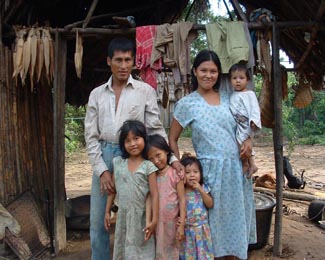Young and participative: requirements of the new model of cultural transmission

Imitation as a method of human learning has never been a simple process. The cultural evolution of the human species based on this method continues to be established in a selective attitude - the selected models are characterized for being prestigious individuals. However, it seems to be that this prestige is no longer conferred to the same models as before. A field study with the Tsimane' - an ethnic group in Bolivia-, has demonstrated that the leadership has moved to the hands of the youngest, who have a high educational level and strong links with community work.
The propensity to imitation over other forms of learning is one of the major differences between humans and other species and one that has allowed for cumulative cultural evolution. However, imitation alone cannot explain increases of average fitness in human populations. Anthropologists have hypothesized that people do not imitate behaviors from random people; rather, transmission of some cultural traits follows biases designed to extract reproductive benefit from the flow of socially transmitted information. Anthropologists have argued that important sources of bias in the acquisition of culturally transmitted information come from prestige processes. Prestige-biased transmission enables new learners to accurately determine which individuals in a community are likely to have above average information in the domain in which they are seeking to acquire knowledge.
In this article, we test predictions from the prestige-bias model of cultural transmission. We use quantitative information on ethnomedicinal plant knowledge of adult Tsimane' men. To measure prestige, we asked Tsimane' to list important villagers and counted the number of nominations each person received. To measure medicinal plant knowledge we asked informants a set of questions on medicinal plants and checked their answers with local experts.We find weak evidence that prestige is associated with ethnomedicinal plant knowledge, and we find no evidence that prestige is associated with age. Rather, we find that prestige bears a positive association with participation in village organizations. Over the last decades, Tsimane' leadership has shifted from the shaman, holder of healing skills and Tsimane' cultural values, to schooled Tsimane' whose main social role is to represent Tsimane' interests to outsiders. In rapidly transforming rural societies, such as the Tsimane', the prestige of the elder and the culturally savy might have depreciated.
References
Do the aged and knowledgeable men enjoy more prestige? A test of predictions from the prestige-bias model of cultural transmission. Reyes-Garcia, V; Molina, JL; Broesch, J; Calvet, L; Huanca, T; Saus, J; Tanner, S; Leonard, WR; McDade, TW. EVOLUTION AND HUMAN BEHAVIOR, 29 (4): 275-281 JUL 2008

